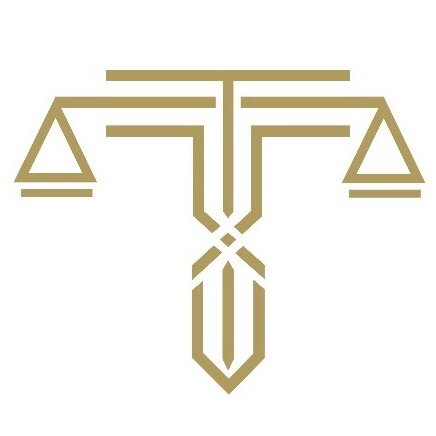Best Corporate Governance Lawyers in Dammam
Share your needs with us, get contacted by law firms.
Free. Takes 2 min.
List of the best lawyers in Dammam, Saudi Arabia
About Corporate Governance Law in Dammam, Saudi Arabia
Corporate governance in Dammam, Saudi Arabia, is a critical legal and regulatory framework governing how companies are directed and controlled. The main objective of corporate governance is to ensure transparency, accountability, fairness, and compliance in corporate entities. In Saudi Arabia, including Dammam, these rules are largely influenced by Islamic Sharia, the Companies Law, and guidance from regulatory authorities such as the Capital Market Authority (CMA) and the Ministry of Commerce. Sound corporate governance strengthens investor confidence and supports the sustainable growth of companies across sectors potentially reducing legal disputes and unethical business practices.
Why You May Need a Lawyer
Navigating the complexities of corporate governance in Dammam can be challenging for business owners, directors, shareholders, and stakeholders. Here are some common situations when seeking legal advice is essential:
- Establishing or restructuring a corporate entity
- Drafting or revising internal policies and articles of association
- Handling disputes between shareholders, directors, or management
- Ensuring compliance with evolving regulations set by authorities
- Managing and documenting board meetings and resolutions
- Conducting due diligence in mergers and acquisitions
- Responding to regulatory investigations or penalties
- Protecting minority shareholder rights
- Addressing conflicts of interest and related party transactions
- Establishing or improving risk management frameworks
Local Laws Overview
Corporate governance in Dammam is primarily regulated by the Saudi Companies Law, Capital Market Law, and various circulars and regulations issued by the Capital Market Authority and Ministry of Commerce. Here are some key aspects:
- The Saudi Companies Law applies to all companies operating in the Kingdom including joint stock and limited liability companies.
- The Capital Market Authority (CMA) issues and enforces corporate governance regulations, especially for publicly listed companies, covering disclosure, transparency, and board practices.
- Internal company rules, such as articles of association and board charters, must align with national legislation and be registered with authorities.
- Clear procedures for the appointment, duties, and removal of directors and managers are mandated.
- Companies must implement transparent accounting practices and regular financial audits.
- Protecting the rights of stakeholders, including minority shareholders, is emphasized under the law.
- Penalties for non-compliance can include fines, suspension of operations, or in serious cases, criminal prosecution.
Frequently Asked Questions
What is corporate governance?
Corporate governance refers to the system of rules, practices, and processes that direct and control a company. It ensures accountability, transparency, and fairness in a company's relationship with stakeholders.
Are corporate governance laws the same for all companies in Dammam?
While overarching laws such as the Companies Law apply to all companies, specific requirements may vary for public, private, limited liability, and joint stock companies. Listed companies have stricter rules under the Capital Market Authority.
Is it mandatory to have a board of directors?
Certain company types, such as joint stock and publicly listed companies, are required to have a board of directors. The composition and duties of the board are defined by Saudi law.
What does the Capital Market Authority require regarding disclosure?
The CMA requires companies especially those publicly listed to make regular and accurate disclosures regarding financial performance, governance structures, and significant changes or transactions.
How is conflict of interest managed in corporate governance?
Companies are required to establish policies for identifying, disclosing, and managing potential conflicts of interest, and directors must abstain from voting on conflicting matters.
What are the penalties for violating corporate governance laws?
Penalties may include financial fines, suspension or cancellation of company licenses, and in severe cases, criminal charges against responsible individuals.
How are shareholders’ rights protected?
The law guarantees certain rights for shareholders, such as voting on key matters, accessing accurate information, and receiving dividends. Minority shareholders are given specific protections to prevent unfair prejudice.
Can foreign nationals serve on the board of directors?
Foreign nationals can serve on company boards, subject to specific regulations, company bylaws, and any sector-specific legal requirements.
What is the process for resolving director or shareholder disputes?
Disputes can be resolved through negotiation, internal company mechanisms, or legal proceedings before competent courts or arbitration panels, depending on the case and company policy.
Is corporate governance compliance monitored regularly?
Yes. Regulatory bodies such as the Capital Market Authority and Ministry of Commerce conduct inspections and require periodic filings to monitor corporate governance compliance.
Additional Resources
If you need further guidance on corporate governance in Dammam, consider reaching out to these local resources:
- Ministry of Commerce - oversees company formation, compliance, and registration
- Capital Market Authority (CMA) - regulates listed companies and capital markets
- Saudi Organization for Certified Public Accountants (SOCPA) - involved in enforcement of accounting standards
- Dammam Chamber of Commerce and Industry - provides business support and up-to-date regulatory news
- Local law firms specializing in corporate law and governance
Next Steps
If you believe your business requires legal assistance regarding corporate governance in Dammam, it is advisable to take the following steps:
- Consult a local lawyer specializing in corporate law to evaluate your situation and provide tailored guidance
- Gather necessary company documents, bylaws, and previous compliance reports to facilitate an informed legal consultation
- Stay updated with recent changes in the Companies Law and CMA regulations that may impact your business
- Engage with local business associations or chambers to access professional networks and resources
- Consider periodic legal audits to proactively prevent or address potential governance issues
Taking these steps will help ensure your company operates within the boundaries of the law and maintains a strong governance framework, safeguarding your business interests and those of your stakeholders.
Lawzana helps you find the best lawyers and law firms in Dammam through a curated and pre-screened list of qualified legal professionals. Our platform offers rankings and detailed profiles of attorneys and law firms, allowing you to compare based on practice areas, including Corporate Governance, experience, and client feedback.
Each profile includes a description of the firm's areas of practice, client reviews, team members and partners, year of establishment, spoken languages, office locations, contact information, social media presence, and any published articles or resources. Most firms on our platform speak English and are experienced in both local and international legal matters.
Get a quote from top-rated law firms in Dammam, Saudi Arabia — quickly, securely, and without unnecessary hassle.
Disclaimer:
The information provided on this page is for general informational purposes only and does not constitute legal advice. While we strive to ensure the accuracy and relevance of the content, legal information may change over time, and interpretations of the law can vary. You should always consult with a qualified legal professional for advice specific to your situation.
We disclaim all liability for actions taken or not taken based on the content of this page. If you believe any information is incorrect or outdated, please contact us, and we will review and update it where appropriate.

















